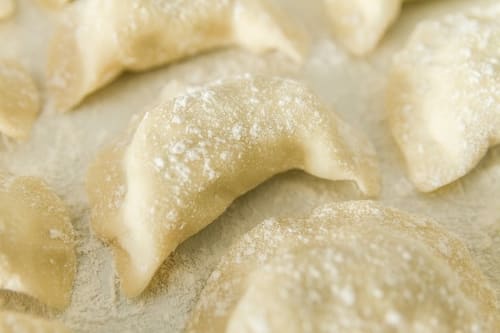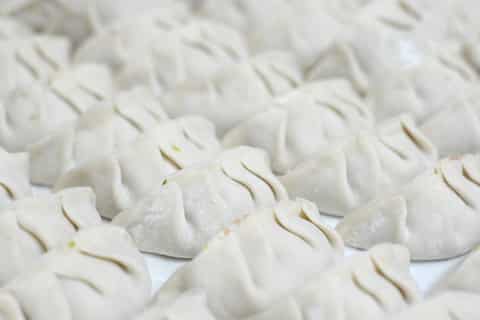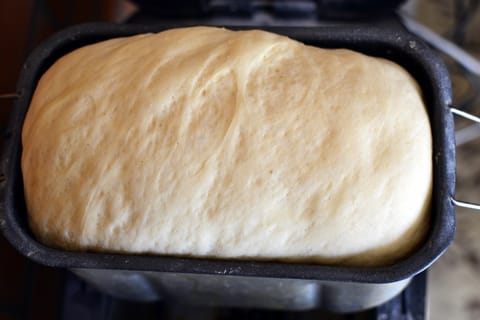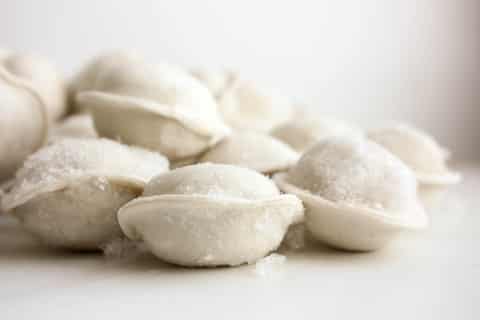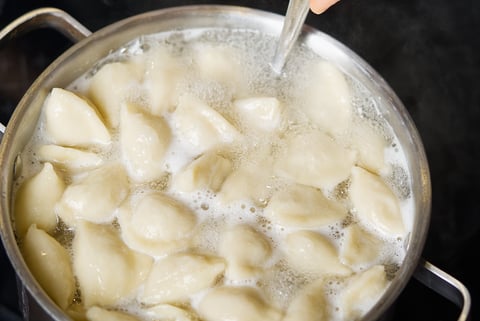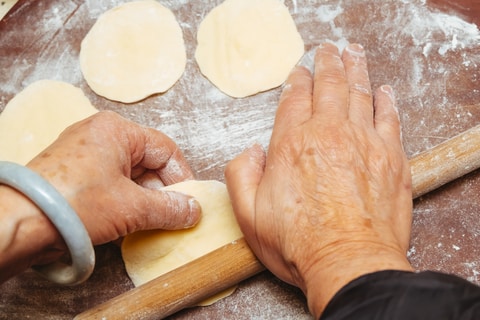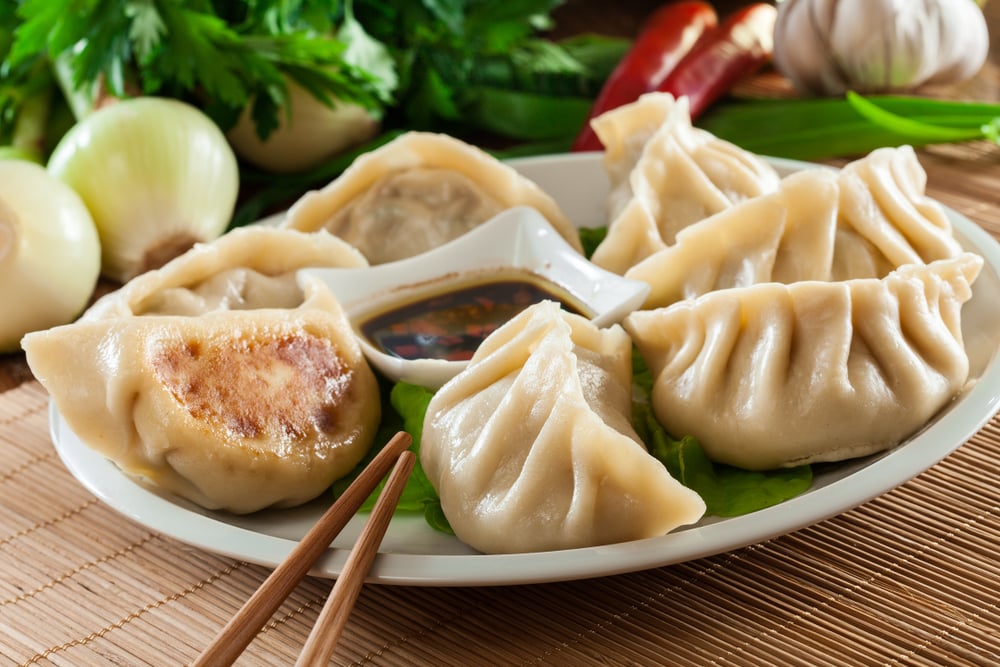
Dumplings are a delicious treat and in some cultures, they’re a staple. Let’s be clear from the beginning that in this article, we’re talking about Asian-style dumplings and not the British type that is floated on top of stews.
Chinese dumplings are boiled in water so they are different from potstickers and steamed dumplings. In China, they are considered a staple alternative to rice and noodles.
Boiled dumplings are juicy and flavorful with thin, tender wrappers. They are a convenient one-dish meal that is the most important dish when ushering in the Chinese New Year.
The ingot shape symbolizes wealth and is believed to bring good luck and prosperity.
Boiled dumplings require a little skill to ensure they won’t dissolve and fall to pieces during the boiling process, thereby losing their flavor into the water.
Dumplings are not difficult to master once you understand the basic techniques, but one thing some beginners struggle with is how to get them not to dissolve or fall apart. Read on because we have the answers for you.
How Do You Keep Dumplings From Dissolving?
Why Do My Dumplings Dissolve?
The answer to this question may lie in the sealing of your dumplings.
When you put your dumplings into the pot, the steam and the pot’s heat cause the dumplings to expand, and if you committed mistakes while sealing the dumplings, this is one of the most common reasons why dumplings dissolve and fall to pieces.
When you are sealing your dumplings, it’s important to do it carefully so that the seal is strong enough to withstand the expansion caused by the heat.
How to Avoid Dumplings From Dissolving
Many reasons may cause your dumplings to dissolve while cooking. Here we will provide you with solutions to all of the factors responsible for the dissolution of your dumplings.
1. Extremely Soft Dumplings
The most common reason why your dumplings are dissolving and opening up whenever you try to cook them is the softness of your dumplings.
When the dumplings are already too soft, to begin with, and you put them into the pot, they become even softer, leading them to fall apart.
Try adding some extra flour while making the dumpling wrappers. It will help you to prevent your dumpling wrapper from dissolving into the water or oil.
2. Wet Dumpling
Sometimes too much moisture in the wrapper dough or the filling causes the problem. Try putting the dumplings into the fridge, uncovered, for a while after assembling to dry out a little.
You can also try reducing the amount of soup or sauce in the filling.
3. Not Sealing the Dumplings Properly
As we discussed earlier, not correctly sealing the dumpling may cause them to dissolve in the pot. Taking a little extra time to seal them carefully can prevent disaster later.
Try using a fork to press the sides of the wrappers closed. Be careful not to let any filling liquid touch the sealing edges or they will open up during cooking.
4. Not Letting the Dough Rest
After mixing, the dough should be covered and left to rest for a while – around 3 hours. This will ensure it’s smooth and springy. It should have a slightly tough consistency, rather than being too soft.
5. Allowing the Dough to Dry Out When Wrapping
When you’re ready to wrap the dumplings, you need to work fast or the dough will dry out and not seal properly. It helps if two people work together on this.
6. Letting The Dumplings Stand After Cooking
It is important to boil the dumplings straight after they’ve been wrapped. If you don’t, the wrapping will absorb too much liquid and dissolve. If you don’t want to cook them straight away, freeze them until you are ready.
7. Cooking Too Many in a Batch
Overcrowding the pot leads to problems. Use a big pot and cook small batches at a time.
8. Boiling Them for Too Long
The dumplings need o boil for 5 minutes, maximum. Remember, your filling is already cooked so you are just needing to cook the thin wrapper. If you overboil them, they will start to dissolve.
9. Using the Wrong Wrapper Recipe
Make sure you use a dough recipe for boiled dumplings, not steamed ones, as they are not the same. Steamed dumpling dough is made with hot water, while boiled dumpling dough calls for room temperature water.
Good luck with your dumplings! We hope our tips will help you get this delicious Asian dish right.
